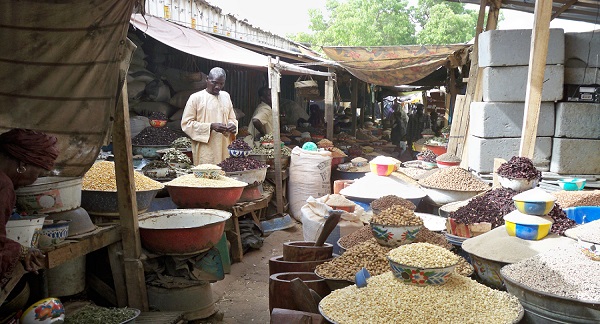
Main Economic Activities
Generally, agricultural activities form the mainstay of the people's economy and engage directly or indirectly more than 80 percent of the population.
The economy of Niger is based largely on internal markets, subsistence agriculture, and the export of raw commodities: foodstuffs to neighbors and raw minerals to world markets. Niger, a landlocked West African nation that straddles the Sahel, has consistently been ranked on the bottom of the Human development index, with a relatively low GDP and per capita income, and ranks among the least developed and most heavily indebted countries in the world, despite having large raw commodities and a relatively stable government and society not currently affected by civil war or terrorism. Economic activity centers on subsistence agriculture, animal husbandry, re-export trade, and export of uranium.
The 50% devaluation of the West African CFA franc in January 1994 boosted exports of livestock, cowpeas, onions, and the products of Niger's small cotton industry. Exports of cattle to neighboring Nigeria, as well as groundnuts and oil remain the primary non-mineral exports. The government relies on bilateral and multilateral aid – which was suspended briefly following coups d'état in 1996 and 1999 – for operating expenses and public investment. Short-term prospects depend on continued World Bank and IMF debt relief and extended aid. The post 1999 government has broadly adhered to privatization and market deregulation plans instituted by these funders.
Niger's economy is based largely on subsistence crops, livestock, and some of the world's largest uranium deposits. Drought cycles, desertification, a 3.4% population growth rate and the drop in world demand for uranium have undercut an already marginal economy. Traditional subsistence farming, herding, small trading, and informal markets dominate an economy that generates few formal sector jobs. Between 1988 and 1995 28% to 30% of the total economy of Niger was in the unregulated Informal sector, including small and even large scale rural and urban production, transport and services.
Source: Wikipedia
Banks in Niger
Brief History of Niger
Business and Economy
General and Teaching Hospitals
Hotels and Guest Houses
Niger State Ministries Agencies and Parastatals
Police Stations
Popular Markets
Shopping Malls
Restaurants, Bars, Night Clubs
Traditional Rulers
TOURIST ATTRACTIONS
Bina FootprintsFirst Railway Locomotive Engine
Gurara Waterfalls
Lord Lugard Colonial Ruins
Zuma Rock
FESTIVALS AND CARNIVALS
Durbar Festival
Connect With Us

|

|

|

|
